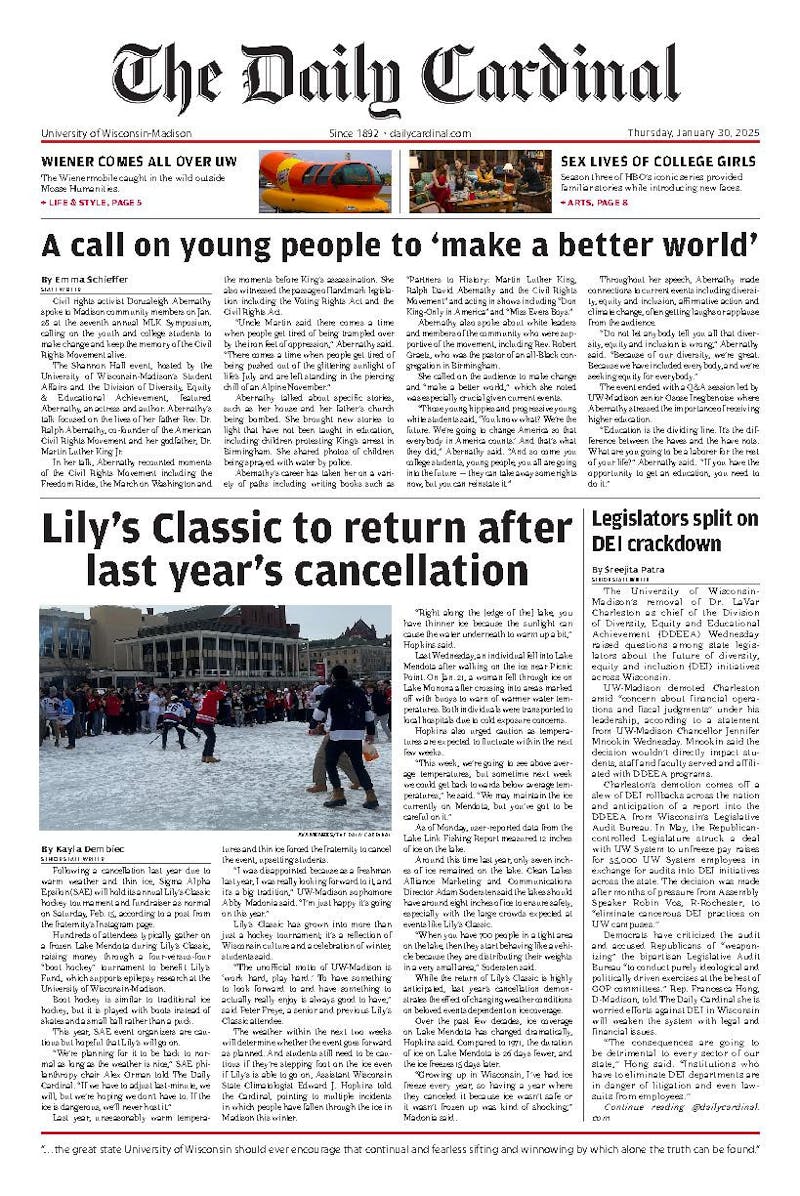Despite receiving a platinum Bicycle Friendly University certification by the League of American Bicyclists, some University of Wisconsin-Madison students and professors still seek improvement for campus and city bike infrastructure.
UW-Madison was recognized at the silver level in 2011, gold in 2015 and the highest level, platinum, since 2019 for its commitment to address health and environmental challenges by creating a welcoming, inclusive environment for bicyclists.
“It is inspiring to see so many universities committing to the vision of a bicycle-friendly America,” said Bill Nesper, executive director of the league. “These institutions, including UW-Madison, are leading by example and helping to set the standard for better bicycling.”
“This certification exemplifies our commitment to providing excellence in facilities and services for our university community,” said Cindy Torstveit, associate vice chancellor of facilities planning & management at UW-Madison.
Compared to other places he’s lived, like Chicago and Austin, “the infrastructure has been around here for a lot longer, so it's just normal for people,” said James E. Pustejovsky, an avid biker and associate professor in the Educational Psychology Department. “It's easy, pleasant.”
Winston Thompson, a UW-Madison student who’s been biking for three years, agrees the city’s infrastructure is “definitely better” than other places.
However, he and other bikers maintain there are still improvements to be made, especially in certain areas.
“Going with traffic on University Ave. can be pretty frightening, especially when you have a bus coming up on your butt and it's trying to run you over,” Thompson said.
Both Thompson and Pustejovsky said they would prefer more barriers to protect bike lanes from cars.
Pustejovsky cited the John Nolen intersection with the Capital City State Trail and East Washington Avenue as his biggest gripes with Madison’s current bike network.
“I'm really not happy with the designs they've used. It's still just privileging cars,” Pustejovsky said.
Non-bikers agree with infrastructure issues.
“I think there's a need for more bike lanes on campus because sometimes they come up [out of] nowhere and almost kill me,” said Aleksandr Rose, a UW-Madison student who mainly walks on campus.
“I actually almost got hit by one walking here,” Rose added.
Rose is particularly wary of those on electric BCycles, since the motorized bikes typically travel at a faster speed.
Infrastructure also worsens in the winter season.
“They do plow some of the paths but they still get pretty icy and slippery,” Thompson said. “I definitely reduce my biking in the winter.”
Pustejovsky worries that this debate puts bikers and walkers up against each other when cars are the real issue.
“We don't want things to turn into a fight between people on foot or and people on bikes because we're still just fighting over this tiny little sliver of the transportation network,” Pustejovsky added.
“I think bikes and walkers should always have the right of way,” Thompson said. “A lot of cars don't always agree with me.”
“Having more bike lanes would advance us from platinum to diamond,” Rose said.
Mary Bosch is the college news editor and photo editor emeritus for The Daily Cardinal. She is a second year journalism and sociology student with a focus in data. Follow her on twitter: @Mary_Bosch6






